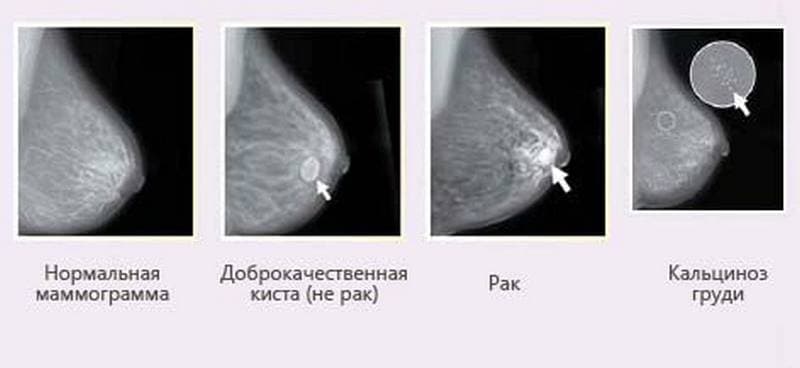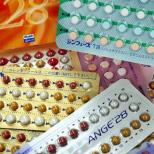Why before menstruation the breast hurts and swells: the answer of the gynecologist
Why does the chest hurt before menstruation? This worries every third representative of the weaker sex, because the appearance of pain is almost always associated with some kind of pathological process, deviation from the norm, or even a disease that may occur in the body. Let's try to figure out what happens to the chest before menstruation?
What happens to the breast before menstruation?
Menstruation is a special physiological function of a woman's body, which makes it possible to judge the work of the reproductive system. Ovulation is part of the menstrual cycle, which means the release of an egg from the ovary, which is accompanied by a change in hormonal levels, this creates the conditions for pregnancy.
Under the influence of progesterone, which dominates the body in the second phase of the cycle, fluid accumulates in the glandular structures and interstitial spaces of the breast. Its increase, or swelling, is usually noted a week before the onset of menstruation, and a decrease on the eve or on the first day of the cycle.
Why does the breast swell before menstruation not always and not for everyone?
The feeling that the chest is filled or swells, usually does not occur for everyone. The main causes of this symptom are as follows:
- Hormonal disorders.
- Constant psychological discomfort.
- Eating foods that retain fluid.
- Abortions and miscarriages.
- Pregnancy.
- The use of hormonal drugs.
Sometimes only one breast increases in girls, such a case requires careful examination and observation, as this may be the first manifestation of a serious pathology.
Is it normal for breasts to hurt before menstruation and how?
Pain is not always the norm, but in cases where the chest hurts before menstruation, this is just a manifestation of physiology. It should be noted the special nature of the pain: the chest does not hurt, but constantly aching until that moment. At such moments, the breast swells, increases in size, pours. Symptoms may come and go for as long as the days of a period.
Can there be discharge from the chest before menstruation?
Changes in the hormonal nature, as a result of which the breast enlarges, swells, swells, can lead to the appearance of secretions that differ in color and consistency. A detailed examination of a woman can answer the question of whether this is a norm or a pathology.

The appearance of colostrum or white discharge indicates a fairly physiological process, while brown discharge in most cases is a harbinger of serious illness.
In nursing mothers, when the cycle begins to recover, after a long period, it is of a special nature. Symptoms in this case will be as follows:
- tingling appears on the sides;
- aches in the lower abdomen or severe pain in the abdomen;
- be sick;
- lower back ache;
- there may be a burning sensation in the chest;
- the hot and hard mammary gland is very engorged, it becomes heavier;
- if you feel the chest, you can feel a lump that looks like a ball, lumps or lumps. Some, describing, note that it is like a bump that grows and hardens;
- the change in the chest lasts a week and disappears as soon as scanty or profuse menstruation begins.
The appearance of a seal in women in menopause may be a manifestation of oncology. If the breast burns, bursts, grows, hardens, darkens, itches, tingling appears, or it has sharply increased and got sick, and the sensitivity has ceased to be felt normally, the woman should immediately consult a doctor, especially if the neglect of the process is manifested by the following symptoms:
- nipples are deformed;
- in the thickness of the mammary gland, which seemed to be blown away, a hard lump appeared;
- the seal in the chest pulls on the surrounding tissues and is soldered to them;
- discharge from the nipples.
4 diagnostic methods for examining the breast for pain in it
In order to establish the reasons due to which one breast (right or left) is enlarged, as well as to determine why both swell and fill, the doctor needs to obtain the results of certain tests and conduct special diagnostic studies.
- A general blood test allows you to judge the presence or absence of inflammatory processes in a woman's body, disorders of the blood coagulation system, as well as anemia.
- Test analyzes for certain hormones of the genital area make it possible to determine why the changes began, what exactly led to the imbalance and how long this has been happening.
- A blood test for specific tumor markers will make it possible to suspect an oncological disease. But it is worth mentioning right away that elevated levels of oncomarkers are not the end point in the diagnosis of "". Symptoms and test results should be evaluated in combination, and if a malignant process is suspected, a histological examination (biopsy) will be mandatory.
- Ultrasound of the mammary glands and small pelvis allows you to detect volumetric formations, evaluate the structure of nearby lymph nodes, which further affects the treatment. This study is relevant in women under 35 years of age. At an older age, for diagnostic purposes, mammography is performed - an x-ray of the breast after the injection of a contrast agent through the nipple.

4 tips on what to do if your chest hurts before your period
Before carrying out any treatment or following general recommendations, you should consult a doctor for pre-examination and identification of provoking factors. In cases where no serious pathologies have been identified, it is recommended:
- Adhere to a special diet, excluding spicy spicy and salty foods, eating more vegetable and low-fat foods. Nausea ceases to bother, if, moreover, limit the intake of strong tea and coffee.
- The use of special bodices and bras with special supporting elements on the side is aimed not so much at eliminating pain as at preventing its occurrence.
- It is not recommended to massage the chest, because if you press hard or squeeze the painful area, you can do much more harm, thereby causing an increase in swelling.
- The use of painkillers is justified in cases where the pain is severe and affects the quality of life. Before taking medications, you should read the instructions and exclude contraindications to them.
In cases where menstruation has gone earlier or later than the due date, the breast continues to swell, the presence of secretions from the mammary glands constantly smears underwear and all this creates discomfort in a woman's life, a medical selection of hormonal therapy is necessary. The effect of it comes as soon as the menstrual cycle normalizes.
How often do you visit a gynecologist (not during pregnancy)?
Please choose 1 correct answer
Once a year
Total score
Semiannually
Total score
I don't remember when was the last time





